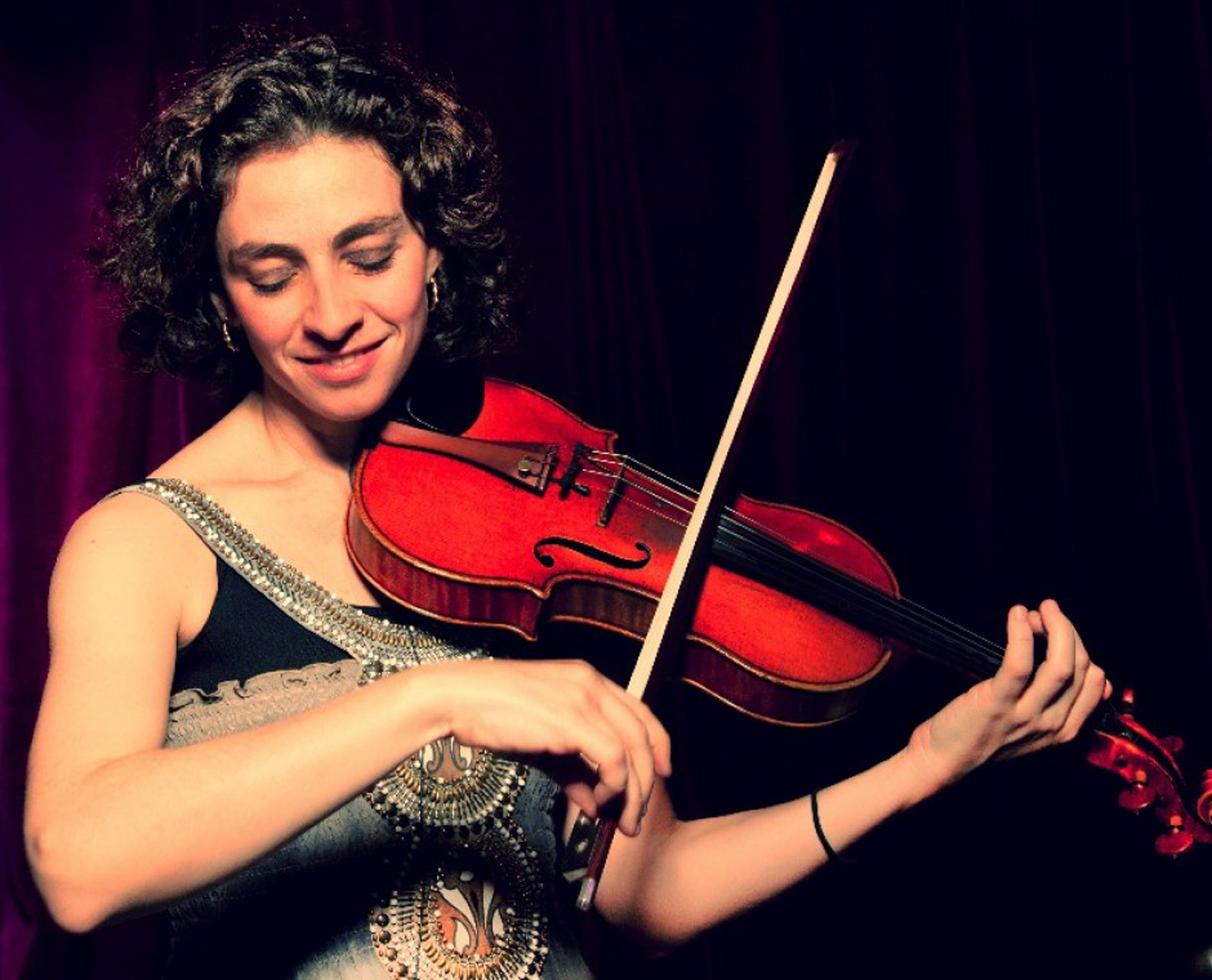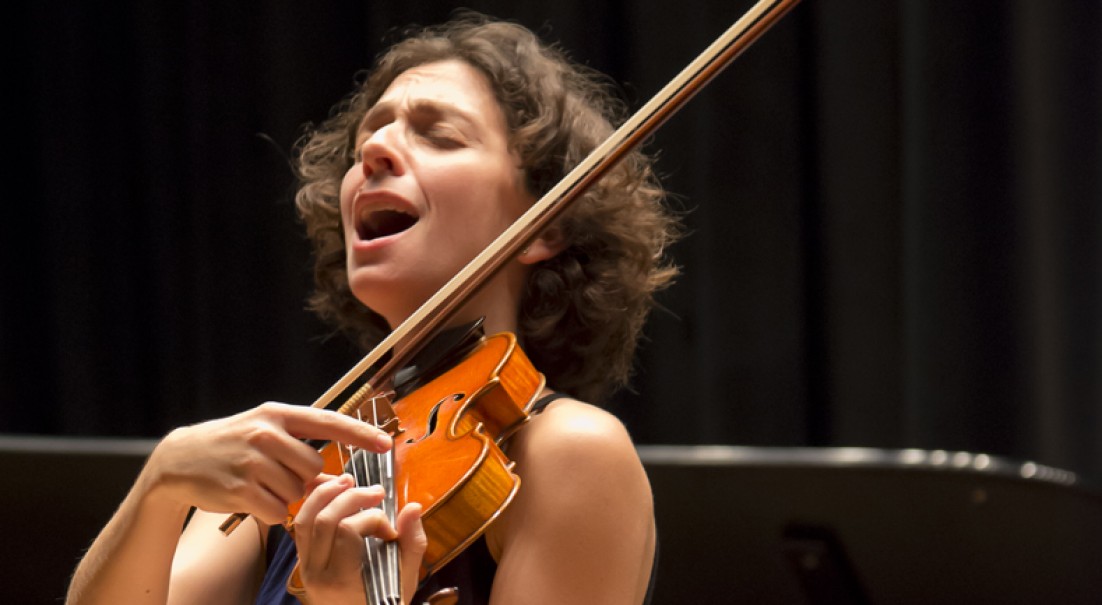
In the old days it must have been a common sight: a bard with a fiddle, singing and playing at the same time. Medieval woodcuts often show a fiddler holding his instrument to his chest, a posture that frees up the throat for song. Singing fiddlers still appear sometimes in the back room of an Irish pub, or at a gathering of Gypsy musicians, where the player sings, one elbow resting on a table.
On Tuesday evening at the DiMenna Center for Classical Music that tradition was revived to startling effect in the hands of Carla Kihlstedt, a singer-songwriter and violinist invited by the New York Festival of Song to design an evening of contemporary song for its Nyfos Next series. Ms. Kihlstedt trained as a classical violinist but has since founded a number of ensembles — among them Sleepytime Gorilla Museum, Rabbit Rabbit and Tin Hat — that show off her ability to sing and play simultaneously.
In introductory remarks she likened these projects to paper airplanes conveying messages from one musical island to another. But above all, her songs celebrate a kind of portable artistic self-sufficiency that is both ancient and of the moment.

Ms. Kihlstedt opened with “Hush, Hush,” a lullaby that blended smoky arpeggios with an innocent yet unsettling singing style that brought to mind the voice of Bjork. In “The Curious One” she carved a deep rhythmic groove together with her husband, Matthias Bossi, on piano and drums.
Her fellow singing violinist, Eden MacAdam-Somer, brought astonishing virtuosity and raw expression to three “Rumi Songs” that drew on classical and bluegrass violin traditions as well as a wide range of vocal techniques. The violin part to her songs was more rigorously technical, with complex pizzicato passages, Romantic cadenzas and harmonic modulations that evoked an Appalachian Bach.
The symbiosis of voice and bowed string instrument was also revealed in songs by Lisa Bielawa (sung by the ardent mezzo-soprano Anne-Carolyn Bird) and Susan Botti, both featuring the soulful Nicholas Canellakis on cello. Even the more liederlike selections for voice and piano revealed Ms. Kihlstedt’s eye for the unexpected: Nicola Lefanu’s “I Am Bread,” about the fate of a decapitated sheaf of wheat, offered an entirely new take on the subject of heartsick self-immolation.
In “Bravement,” for choir and obbligato light bulbs, Lautaro Mantilla did away with words altogether, creating a kind of vocal installation on the themes of sisterhood and silence. Eerie, electrifying and curiously moving, it fitted well into an evening that soldered together the archaic and the experimental.


